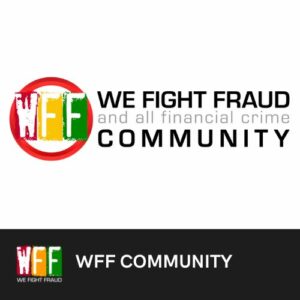
The Liminality of Fraud
FREE for WFF Academy members. Not a member? Get your 12 month subscription for only £99
An exclusive masterclass with criminologist Dr Nicola Harding
Thursday 21st Sept 2023 @ 1 pm – 2:30 pm (GMT+1)
This masterclass, presented by Criminologist Dr Nicola Harding, is co-written with individuals with lived experience of committing fraud, professional expertise in fraud prevention and detection, and researchers working in the area of fraud and financial crime. Together we examine the mechanics of example case studies, romance fraud and invoice fraud, to develop a theoretical conceptualisation of fraud and financial crime that focuses on the physical and conceptual spaces within which fraud occurs.
This masterclass will explain how:
- Fraudsters create liminal identities during the process of committing fraud. To partially transform, fraudsters will seek out liminal spaces in person, on the phone, via text message, online, or through a combination of communication methods.
- Fraudsters do not always seek immediate financial gain; the aim of the contemporary fraudster may be personal data which can then be used to commit further crimes.
- Within liminal space, individuals are transformed into victims of fraud, or potentially into “co-offenders” in order to use the individual to target businesses.
Before considering how, when you can identify the liminal space within your organisation, situational crime prevention techniques can be utilised to prevent and disrupt fraudsters harming your business.
Fraud is an area of criminological enquiry that has avoided contemporary theoretical reflection. Rather, the Fraud Triangle proposed by Cressey (1950) and Fraud Diamond Theory (FDT) of Wolfe and Hermanson (2004) remain the cornerstones of theorisation of fraud and as such the basis upon which academic and practitioner understandings of fraud are based. However, the usefulness of fraud theories like these in contemporary business world is limited to the insider threat. Here we propose that it is the liminality of fraud that should be understood in order to adequately identify the areas of your business that are vulnerable to fraud.
Liminality is the concept of a threshold, it describes the state of being betwixt and between where an old world has been left behind but we have not yet arrived at what is to come (Franks & Meteyard, 2007). Yet the fraudster never arrives, they remain in this liminal space as it is essential to their craft. Rather the fraudster utilises the in-between-ness and ambiguity of the space to transform themselves, and their victim.

Dr Nicola Harding
WFF's resident criminologist
Nicola Harding is a Lecturer in Criminology at Lancaster University. She has previously worked at Leeds Trinity University and Manchester Metropolitan University, where she was awarded her PhD. Nicola gained a First Class Honours degree in Sociology and Criminology at Keele University, before obtaining a Masters in Criminology and Criminal Justice, also at Keele University, which was awarded with distinction in 2015. (Read More)
If you are a member of the WFF Academy already you can reserve your spot by visiting the community and clicking sign up on your dashboard.
If you are not a member you can attend this webinar AND get 12 months access to the WFF Academy, including two courses on phishing and ransomware and situational awareness with social engineering. This also gives you access to monthly Q&As,We Fight Fraud Live and all of our other masterclasses for the next 12 months – all for only £99 (incl. VAT).




